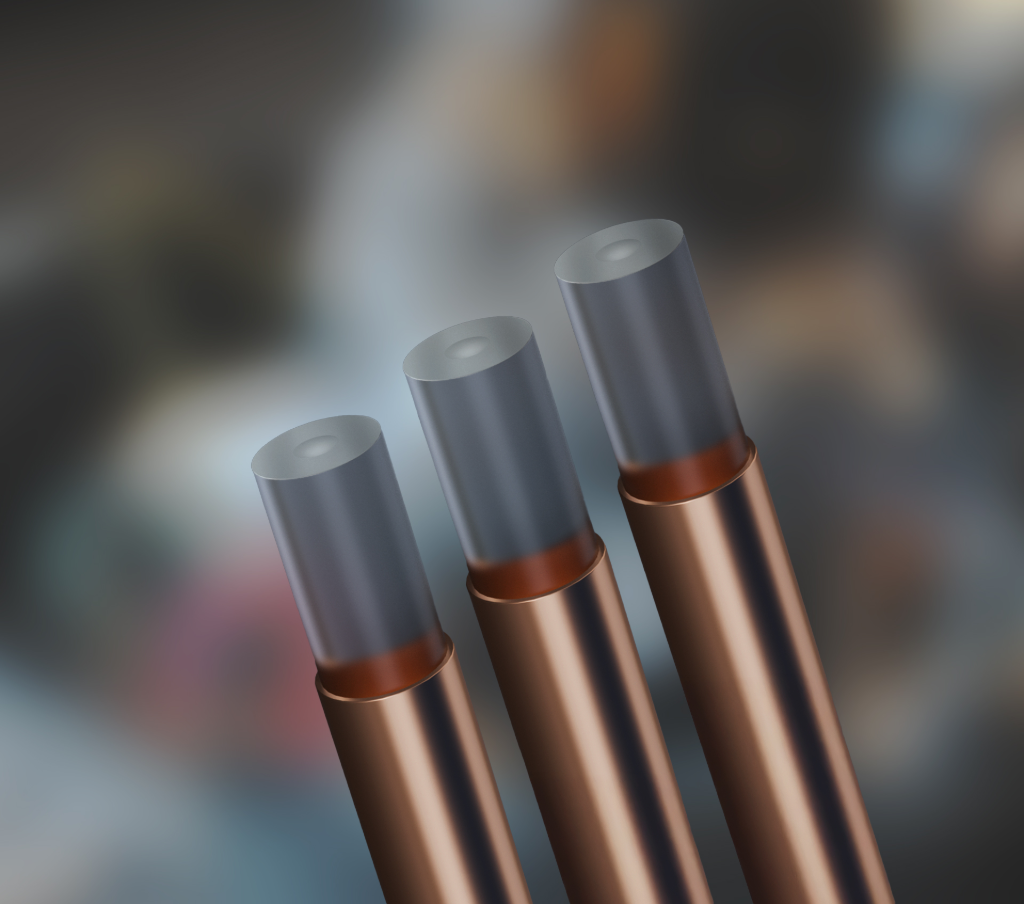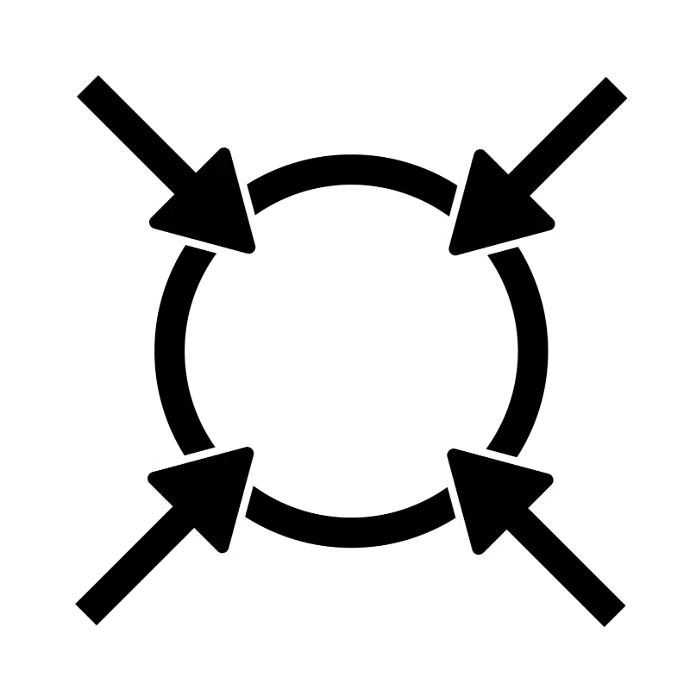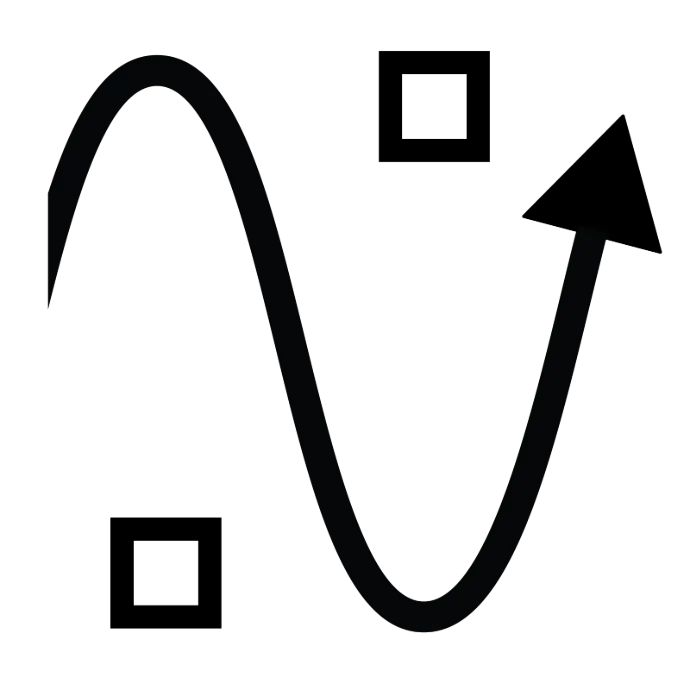
Microcavity mirrors
Qlibri’s microcavity mirrors are designed for demanding applications in quantum optics, nanophotonics, and ultra-sensitive spectroscopy. Fabricated directly on the end facets of optical fibers, they combine high-reflectivity dielectric coatings with laser-machined concave profiles offering radii of curvature down to tens of microns. This approach enables compact, alignment-free Fabry–Pérot cavities with mode volumes close to the diffraction limit which is ideal for strong coupling experiments, quantum emitters, and networked cavity systems.
Our fiber-based mirrors are available on single-mode, multi-mode, or specialty fibers, and can be delivered uncoated or with broadband/high-finesse dielectric stacks. With more than a decade of experience, we offer both stock and fully custom geometries.
As a recent addition, we also fabricate mirrors on custom mesa substrates. These maintain the same optical quality and profile precision as our fiber-based mirrors while enabling integration into chip-based or planar architectures that require greater mechanical flexibility or stability.
All mirrors are fully compatible with Qlibri’s microcavity platforms and absorption microscopes, and can be exchanged within minutes to support rapid experimental reconfiguration or wavelength tuning.
Performance specs
Finesse
10²-10⁵
Broadband coating
Δλ>150nm
Radius of curvature
15-400µm
Broad spectral range
350-2000nm

FULL ACCESS
Quick delivery of stock fibers for the most common wavelengths for immediate use. Fiber mirrors and planar mirrors available!

FULL CONTROL
Precisely machined end facets with Angström level surface roughness, optimized centering and low
birefringence.

FULL CUSTOMIZATION
Design your fibers for your experiments using multi- or single mode fibers, coatings with multiple stop bands, tapered fiber tips, connectorization and many other
options to choose from.

FULL SUPPORT
Close support by experts from the design of the experiment till the publication.
Features
Order micro-cavity mirrors
To buy cavity fiber mirrors, please contact us. We are also happy to support you to find the right micro-cavity mirror or cavity mirror pairs.
Specifications to discuss:
- What reflectivity is needed, or what finesse?
- What radius of curvature is needed?
- What length should the micro-cavity be operated at (longest possible, shortest possible)?
- Do you want to operate the fibers in vacuum?
- Are planar macroscopic mirrors also needed?
- Is a certain transparent band needed? What is the width of the stop-band?
- Are multi-mode or single-mode fibers needed?
- What is the ellipticity needed?
Additional Publications
Selected publications using our fibers:
- Cavity-enhanced Raman microscopy of individual carbon nanotubes T. Hümmer, J. Noé, M.S. Hoffmann, T. W. Hänsch, A. Högele, D. Hunger Nature Commununications 7, 12155 (2016)
- Transverse-mode coupling and diffraction loss in tunable Fabry–Pérot microcavities J. Benedikter, T. Hümmer, M. Mader, B. Schlederer, J. Reichel, T.W. Hänsch, D. Hunger New J. Phys. 17, 053051 (2015)
- Purcell-Enhanced Single-Photon Emission from Nitrogen-Vacancy Centers Coupled to a Tunable Microcavity H. Kaupp, T. Hümmer, M. Mader, B. Schlederer, J. Benedikter, P. Haeusser, H.-C. Chang, H. Fedder, T. W. Hänsch, D. Hunger Physical Review Applied 6, 054010 (2016)
- Cavity-Enhanced Single-Photon Source Based on the Silicon-Vacancy Center in Diamond J. Benedikter, H. Kaupp, T. Hümmer, Y. Liang, A. Bommer, C. Becher, A. Krueger, J. M. Smith, T. W. Hänsch, D. Hunger Physical Review Applied 7, 024031 (2017)
- A scanning cavity microscope M. Mader, J. Reichel, T. W. Hänsch, D. Hunger Nature Communications 6 7249 (2015)
